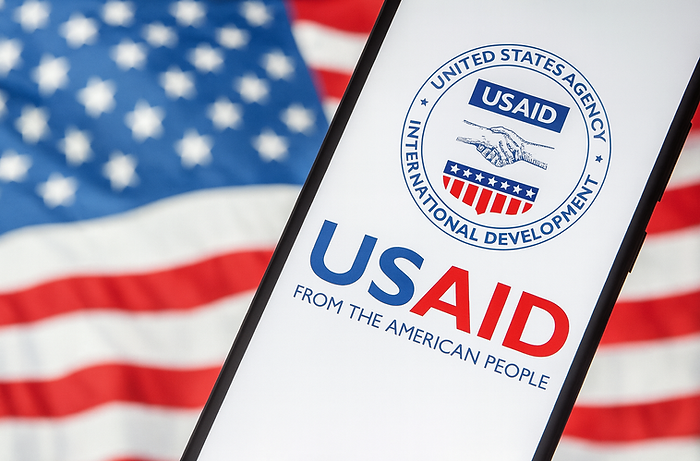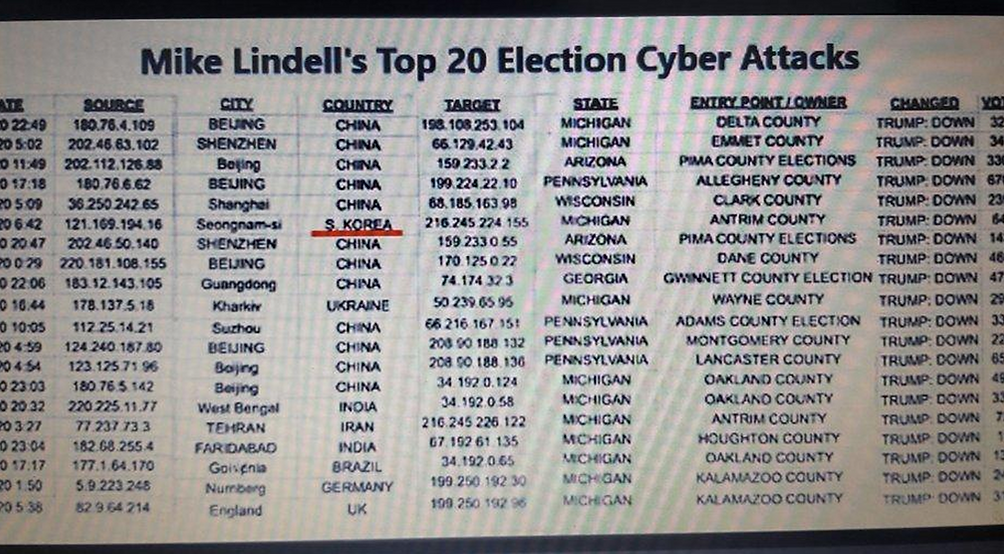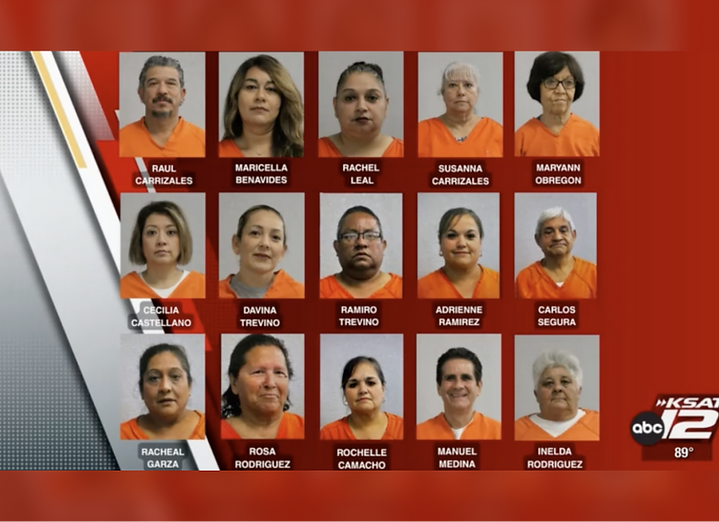top of page

The Ultimate Target of
Election Manipulators:
The United States
This is a national security issue,
not only in South Korea, but also in the U.S.
That was a stolen election.
There is a direct connection here.

by John Mills
-
DAS, International Cyberspace Security
-
Former U.S. Army Colonel
-
Former DoD Cyber Policy Director

Nearly 20,000 Fake IDs
Discovered in the U.S.
Chinese Election Interference Allegations and
Former FBI Silence
Originally exposed by investigative journalist John Solomon and amplified by Donald Trump Jr., this revelation has reignited serious concerns over foreign influence in U.S. elections.
Documents reviewed by Senator Chuck Grassley’s office reveal that in 2020, the FBI received intelligence about a Chinese plot to help Joe Biden win—using fake driver’s licenses and TikTok data. The report was later abruptly ordered destroyed.
U.S. Customs and Border Protection (CBP) seized nearly 20,000 fake Chinese driver’s licenses at Chicago O'Hare Airport. Yet, the FBI dismissed the case and never launched a criminal investigation—despite the gravity of the intelligence.
*Source : Rumble (Donald Trump Jr.)
Has South Korea Become a Gateway
for Global Election Manipulation?
Scrutiny Intensifies Over A-WEB and USAID
*Source : Ground C YouTube
At the center of global election fraud allegations is
the Association of World Election Bodies (A-WEB),
headquartered in Incheon, South Korea.
Countries that adopted A-WEB’s electronic voting systems—such as Iraq, the Democratic Republic of Congo, and Brazil—have faced widespread accusations of vote manipulation. In Iraq, manual recounts revealed results up to twelve times different from the electronic tallies.
In 2018, Kim Dae-nyeon, Secretary General of South Korea’s National Election Commission, resigned in protest of A-WEB’s deviation from its founding purpose and its biased promotion of election equipment from select vendors.


Wang Huning: The Alleged Architect Behind Coordinated Election Strategies
China’s United Front and Unrestricted Warfare (超限戰)

*Source: National Election Commission YouTube
South Korea’s National Election Commission
featured a controversial figure in Episode 1 of its official YouTube series, “Democracy and Leadership.”
He was introduced as
“one of the world’s exemplary democratic leaders.”
Following public criticism, the video was swiftly removed.
His name is Wang Huning. But who is he, really?

6,432 Deleted Trump Votes
Traced to Seongnam, South Korea

A key incident cited in allegations of Chinese interference in the U.S. election involves South Korea—specifically, the so-called
“Seongnam IP incident.”
Mike Lindell released cyber forensic data submitted to U.S. courts, showing that a cyberattack originating from an IP address in Seongnam during the 2020 election allegedly deleted 6,432 votes for Donald Trump, which were then switched to Joe Biden.
The IP was reportedly linked to a cybersecurity firm believed to be connected to Lee Jae-myung, then mayor of Seongnam and now President of South Korea.
*Source: YouTube – SimriBosuGong
The U.S. Moves
to Eliminate Election Fraud
The Texas Attorney General’s Office is investigating dozens of non-citizens suspected of illegal voting; several have already been indicted and face prosecution.
On July 23, 2025, Craig Callaway, former Atlantic City Council President, was sentenced to 24 months in prison after pleading guilty to election fraud involving illegal mail-in ballots and vote tampering in New Jersey.
President Trump also announced that mail-in voting, tied to election fraud, will be abolished starting in 2026—and that disputed voting machines will be removed as well.

*Source: KSAT News Screenshot

At the federal level, strong measures are underway. President Donald Trump has signed executive orders to protect election integrity, including a mandate requiring proof of citizenship for voter registration.
Defense Secretary Pete Hegseth has warned that Chinese nationals employed at Microsoft were involved in Pentagon cloud infrastructure. Microsoft has since announced their removal from those operations.
*Source : Executivegov.com

The True Sentiment of the South Korean People
According to a July 2025 Pew Research Center survey, 89% of South Koreans consider the United States their most important ally—the second-highest rate globally after Israel.
A 2022 poll by The Diplomat also showed that 81% of South Koreans held an unfavorable view of China, reflecting widespread anti-China sentiment.
Despite these clear indicators, some media outlets continue to claim that many South Koreans prefer closer ties with China over the U.S., drawing criticism for distorting public opinion.

bottom of page


.jpeg)